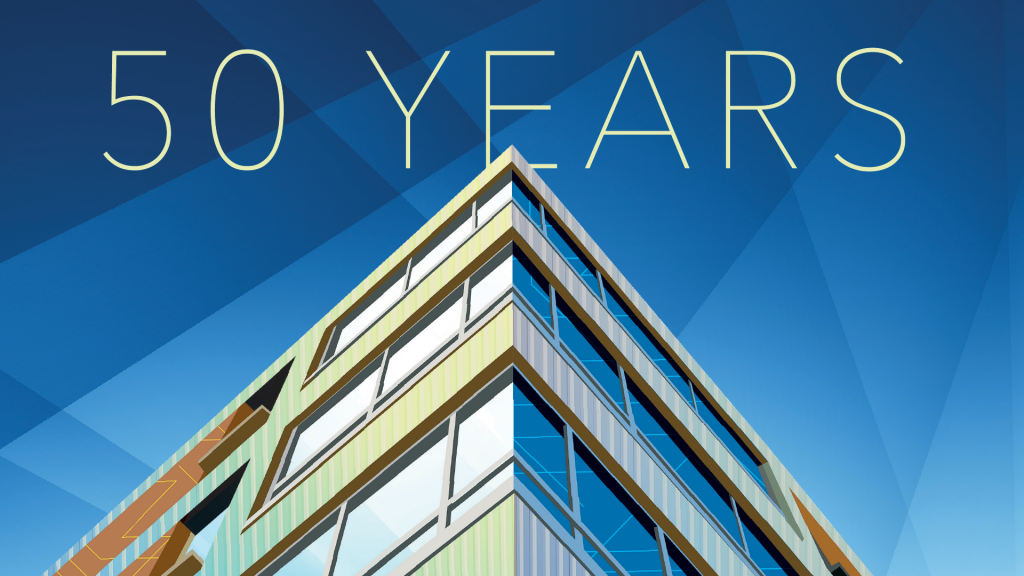Carolina’s Health Sciences Library is—literally and figuratively—an anchor for the University’s health affairs corridor. Perched on Columbia Street, just uphill from the rest of campus, the HSL sits amidst the schools of nursing, medicine, dentistry, public health and pharmacy, and only a brief walk to the hospital complex.
When the HSL opened in 1970 in the brick courtyard of MacNider Hall, it represented a major evolution for Carolina’s medical library collections, which had previously been divided among the various schools and units. The brand-new building—then only two stories tall—boasted all the modern technology: teletype equipment to link to other health sciences libraries, Xerox copiers, microprint readers, tape recorders and projectors.
But the future of search and the power of connection in medical librarianship was already on the mind of Myrl Ebert, the HSL’s first director and an early force behind the transition to a new state-of-the-art facility.
As a committee member advising the National Library of Medicine’s MEDLARS project (Medical Literature Analysis and Retrieval System), Ebert was ahead of the game. MEDLARS (now MEDLINE) was the first large-scale database to make medical literature searchable for the public.
In this last half-century, no area of librarianship has changed more than the health sciences, says Elaine Westbrooks, vice provost for University Libraries and University librarian.
“Fifty years ago, when the library was formed, the world was a different place. Technology has transformed the delivery of health care,” she says.
Librarians today are a vital part of how we accelerate biomedical discovery, zero in on precision medicine and make the most of data science. Librarians are at the center of understanding and discovery, and in no place is that truer than at Carolina.
“Today, we are often described and seen as a scientific information center,” says Nandita Mani, associate University librarian for the health sciences and director of the Health Sciences Library. “Our work focuses to a great extent on research, data and helping people make better health care decisions, whether that person is a patient, clinician, researcher or any other health professional.”
Fifty years after the HSL opened its doors, Carolina’s health affairs librarians carry on the tradition of creating, mastering and teaching new technologies in health information. In 2020, that means working with virtual reality and artificial intelligence, democratizing access to medical literature and partnering with health affairs schools to create new curricula.
Librarians also travel to visit global partners and make connection possible across continents. “How librarians contribute locally and globally to the information ecosystem is in constant evolution,” says Mani. “Our role will grow ever more critical as we partner with students, researchers and clinicians to improve the human condition around the world by connecting people with evidence-based information.”
For Westbrooks, the possibilities are endless. “Our big questions are: What are the health care challenges that are happening here and throughout the world? How will we provide solutions? How can we best support and partner with the researchers who are the ones doing that work? What can we do?”
Stories by Courtney Mitchell
Stories
Health Information for All of Us
Healing the World
A New Generation of Collaboration
Meet Rebecca Carlson
Become a Health Sciences Library partner
The work of Carolina’s Health Sciences Library is more urgent today than ever. As the COVID-19 pandemic raced around the globe, HSL librarians provided crucial information to front-line health care providers at UNC Health and to health professionals and consumers across the state and beyond. They bring this dedication and expertise to their work and partnerships every single day.
To learn how you can support the Health Sciences Library, please contact Blue Dean, executive director of library development, at bluedean@email.unc.edu or (919) 843-0141.
Help us help the world.
Support HSL today.



